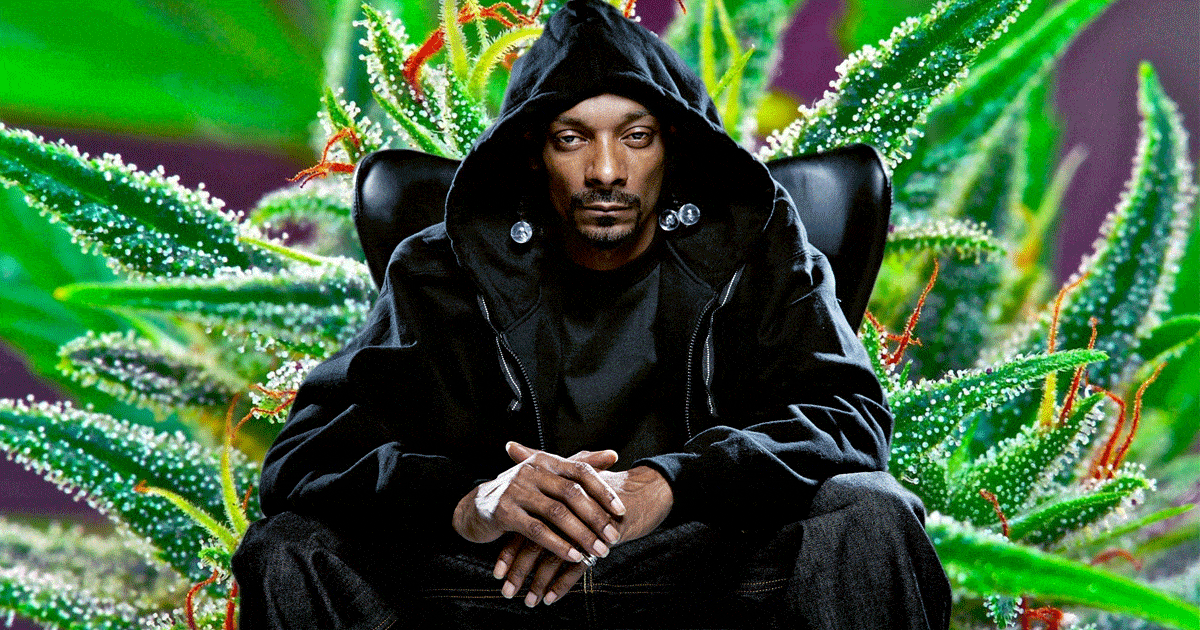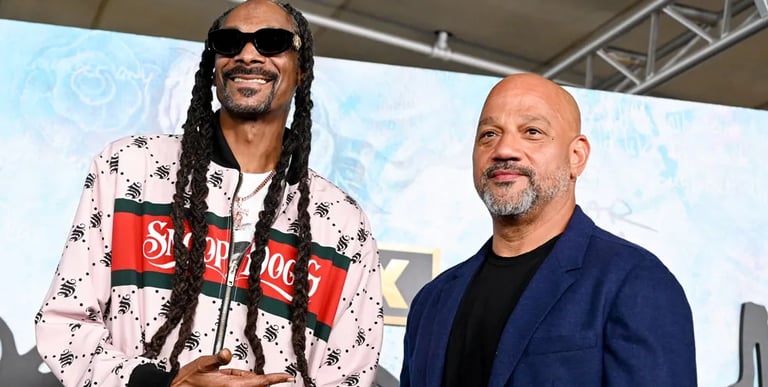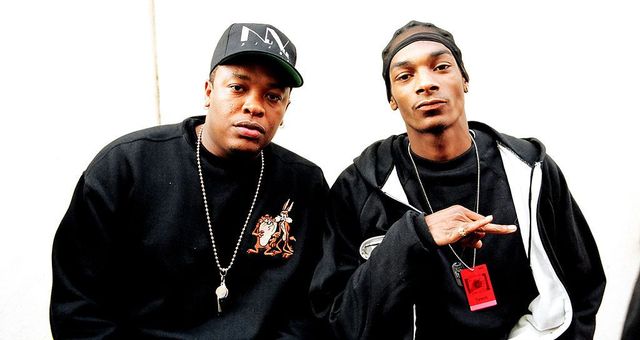“Your home for fearless film reviews, the latest entertainment news, and unfiltered movie rants.”
Snoop Dogg Biopic – Movie Breakdown: Will It Finally Tell the Real Story of a Rap Legend?
Universal and Death Row team up for a Snoop Dogg biopic. Will it reveal the raw truth behind his legacy or just another Hollywood-sanitized rap story?
The Tipsy Critic
6/9/2025

The news that Universal Pictures and Death Row Pictures are teaming up to produce a Snoop Dogg biopic has sparked major excitement — but also plenty of skepticism. As a fan and a critic who follows hip-hop films closely, I’m cautiously optimistic, but this is a tricky story to tell. Snoop Dogg’s legacy isn’t just about chart-topping hits or weed-smoking persona. It’s deeply tied to gang violence, a controversial murder trial, and the East Coast-West Coast rap war — all elements that Hollywood often sanitizes or glosses over.
What’s at stake here is whether this film will finally offer a raw, authentic portrayal of Snoop’s life or end up being just another polished, over-sanitized studio product. With Craig Brewer directing (known for Hustle & Flow), Joe Robert Cole writing (behind Black Panther), and Allen Hughes producing (Straight Outta Compton fame), there’s definitely talent on board. But will they have the courage to deliver the gritty reality that shaped Snoop’s story? Let’s dive deep.
The Stakes Are High: Why This Biopic Matters More Than Just Another Movie
Snoop Dogg is one of the most iconic figures in hip-hop history — and his story is much more complex than the laid-back, weed-loving image most people know. This film is more than entertainment; it’s an opportunity to set the record straight about the Death Row Records era, the gang culture of Long Beach, and the real-life murder trial that nearly ended his career.
For many fans and critics, the key question is whether the film will fully explore those darker and controversial chapters — the Rollin’ 20s Crips origins, the 1993 shooting and murder charges, and the tense East Coast-West Coast rivalrythat defined 90s rap. These aren’t just plot points; they’re crucial moments that shaped not only Snoop’s career but the entire hip-hop landscape.
The fact that Snoop Dogg is an executive producer gives some hope that the film might avoid Hollywood’s usual sanitization trap — the tendency to soften or erase the messy parts in favor of mass appeal. But studios always want crowd-pleasing content, so there’s a fine line between authentic storytelling and commercial compromise.
Behind the Scenes: The Creative Team and the Challenges They Face
Having Craig Brewer, Joe Robert Cole, and Allen Hughes involved is a huge positive. Brewer’s knack for capturing the hustle and heart of music scenes (Hustle & Flow) combined with Cole’s sharp, character-driven writing (Black Panther) and Hughes’ deep roots in West Coast hip-hop films gives this project serious creative muscle.
Still, even the best filmmakers can be pressured to play it safe. Hollywood biopics often end up as highlight reels rather than nuanced narratives. Take All Eyez on Me or Notorious — both suffered from glossing over painful realities or controversies, ultimately diluting the impact.
This Snoop Dogg biopic needs to resist that temptation. The story must include the 1993 murder trial, where Snoop was charged with murder after a fatal shooting but was eventually acquitted on self-defense grounds. It needs to capture the tension and paranoia of that time — how the LAPD mishandled evidence and the atmosphere of fear that surrounded the East Coast-West Coast feud. Without these gritty details, it risks being just another shallow tribute.
The Essential Story Beats That Could Make or Break the Film
There are several moments that the biopic must get right:
Snoop’s Long Beach upbringing and gang ties: Before fame, Snoop was deeply involved with the Rollin’ 20s Crips, and this background influenced everything from his music to his outlook on life.
The murder trial and legal battles: The shooting incident and subsequent trial is one of the most pivotal, but least explored, parts of his story. It’s also a critical moment to showcase the systemic issues around race, policing, and justice in America.
The Death Row era and East Coast-West Coast war: This period was marked by tension, violence, and loss — including the deaths of Tupac and Biggie. Snoop’s relationship with Suge Knight and his survival in that dangerous scene deserves full exploration.
Musical evolution and brand reinvention: From The Chronic to Doggystyle, and even his later identity as Snoop Lion, the film should reflect how he evolved as an artist and businessman.
Cultural reinvention: Snoop’s journey from gangsta rapper to mainstream celebrity, TV host, and cultural ambassador is part of the larger narrative about redemption, adaptation, and longevity.
Missing any of these beats would leave a hole in the story and shortchange Snoop’s complex legacy.
Hollywood’s Sanitization Problem: Why We Should Be Skeptical
Let’s be honest — Hollywood loves to soften the edges when it comes to rap stories. They want to sell the party vibe, the glamour, or the inspirational rags-to-riches tale, but often skip the parts that make the story real and uncomfortable.
Snoop himself has expressed frustration about fake or watered-down portrayals of his life. In interviews, he’s stressed the importance of telling “the real story,” including the parts about his gang involvement, the criminal justice system, and the struggles he faced growing up and in the industry.
Past biopics have been criticized for either glossing over the gritty realities of gang life or whitewashing the complicated, often violent environment that shaped these artists. If this film fails to acknowledge those parts — especially the 1993 murder trial and the East Coast-West Coast feud — it’ll be a missed opportunity and a disservice to fans who want the truth.
Why This Film Could Still Be a Game-Changer — If It Has the Guts
Despite the risks, this project holds immense promise. The creative team is experienced, and Snoop’s executive producer role means he can push for authenticity. If they lean into the complexity rather than shy away from it, this could be the definitive Snoop Dogg story.
Imagine a biopic that doesn’t just celebrate the hits, but also digs into the political climate of 90s LA, the personal demons, and the legacy of resilience that Snoop embodies. This is the story that hip-hop deserves on the big screen — not a sugar-coated highlight reel.
For fans, this film is more than entertainment — it’s a chance to rewrite how rap history is portrayed, bringing real nuance and depth to one of its most enduring icons.
In conclusion, the Snoop Dogg biopic could be a landmark film — or another forgotten attempt. It hinges on whether the filmmakers have the courage to tell the whole story, including the controversial, complex, and gritty parts. If they do, this film won’t just entertain; it will educate, challenge, and elevate hip-hop storytelling for years to come.





As an Amazon Associate, I earn from qualifying purchases.
